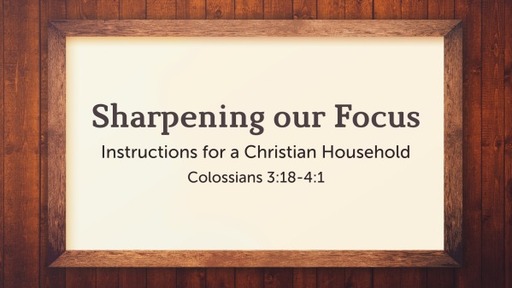Sharpening our Focus (Instructions for a Christian Household)

Husbands & Wives
Rather, it involves his unceasing care and loving service for her entire well-being. (cf. Eph. 5:25–33 where Christ’s love for the church is to be the model for the husband’s love for his wife.) Christlike, sacrificial leadership by the husband will keep the ultimate good of his wife in view at all times.
Where the family is the center of caring, the wife may be asked to be submissive to her husband—but submissive to his love, not his tyranny; a father has authority over his children, but it must be an authority that is trusted; thus authoritative, not authoritarian. The husband/father is to set the pattern of caring, loving as Jesus loved.
Children & Parents
What an example we have set before us in the Lord Jesus Christ! Jesus is the divine example of love and self-denial, and as we hope to be saved by Him we must diligently copy Him. He is now exalted to the highest glory as the reward of His voluntary humiliation, and by the same means must His disciples rise to honor. We must stoop to conquer. He who is willing to be nothing shall be possessor of all things.
